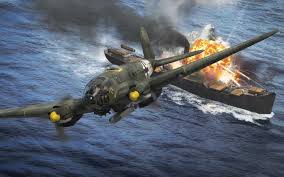Dunkirk, The Experience
 Sunday morning at Starbucks. I have the seating area to myself, reggae music over the PA. I am in recovery. I sat through the movie Dunkirk yesterday. Seated before the enormous IMAX screen I knew viewing the film would be a most unpleasant experience. I enjoy movies usually, and find even the poorly made ones meaningful in some respect. But this two hour war film was more of a reenactment experience than storytelling in cinematic form. The out-sized visual experience, the closeups of unfortunate individuals dying by various means felt pornographic to me. Maybe that is what war is, a pornographic experience of death, monotonously over and over.
Sunday morning at Starbucks. I have the seating area to myself, reggae music over the PA. I am in recovery. I sat through the movie Dunkirk yesterday. Seated before the enormous IMAX screen I knew viewing the film would be a most unpleasant experience. I enjoy movies usually, and find even the poorly made ones meaningful in some respect. But this two hour war film was more of a reenactment experience than storytelling in cinematic form. The out-sized visual experience, the closeups of unfortunate individuals dying by various means felt pornographic to me. Maybe that is what war is, a pornographic experience of death, monotonously over and over.
In 1940 the French and British forces were pinned against the sea by the Wehrmacht, in the French town of Dunkirk. Thousands were evacuated, saved from immanent death or capture by the heroic action of English citizens taking their small fishing and commercial craft across the channel. Exhausted and wounded soldiers were evacuated, a few at a time, to the safety of England.
It seems that the trajectory of post modern film is to offer the viewer “an experience” rather than sound plot development, actions that are unified logically, and by focus upon the character of the main character. Perhaps the movie was better story telling than I am giving credit. The movie depicted many experiences that I hope to be fortunate to never have. Drowning on the fiery surface of a oil slicked sea after a U-boat attack would be one. Trapped below deck on a hospital ship while being bombed by a Heinkel HE 111 is something that I would not choose to experience.
War is simply a ballet of death. The dancers all die, to the standing ovation of the politicos who pay for the production. It has always been thus.
3 thoughts on “Dunkirk, The Experience”
Yes — yes to all you say.
And yet something about us obviously adores war, or why would it be the subject of such a disproportionate amount of our art? The human race seems to feel most alive when meting out death . . . or pretending to . . . or watching / listening to / reading about someone else killing or being killed or barely evading it.
Conventional pornography involves overwhelming one’s senses all at once with only the most intense sexual stimuli in order to provoke the maximum vicarious response, so it sounds as if you nailed just the right metaphor for your experience. Thanks to the film industry, those of us blessed with peaceful lifetimes nevertheless can choose to immerse ourselves in the terrors of war as realistically as possible without bleeding. Whoopee.
So war will never go away; we need to keep updating the material and stories.
I think the “war movie” is our version of the Roman Colosseum. We roar with approval, as someone else faces his/her own death. Are we not entertained?
There was a lot of Decency in the Dunkirk movie, a different view by John Kass:
http://www.chicagotribune.com/news/columnists/kass/ct-dunkirk-movie-kass-met-0723-20170721-column.html
Some thoughts on Nancy’s point.
“The Anatomy of Human Destructiveness” by Erich Fromm
While in civilian life most people do not risk their lives to save another man’s life or share their food with others, in war this is a daily occurrence. Perhaps one might even go further and suggest that one of the factors which make war attractive is precisely the possibility of practicing deeply buried human impulses which our society when at peace considers – in fact, although not ideologically – to be foolish.
In war, man is man again, and has a chance to distinguish himself, regardless of privileges that his social status confers upon him as a citizen. War is an indirect rebellion against the injustice, inequality and boredom governing social life in peacetime, and the fact must not be underestimated that while a soldier fights the enemy for his life, he does not have to fight the members of his own group for food, medical care, shelter, clothing; these are all provided in a kind of perversely socialized system. The fact that war has these positive features is a sad comment on our civilization.